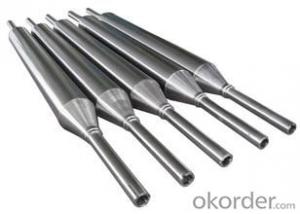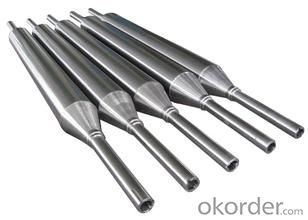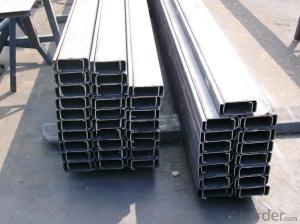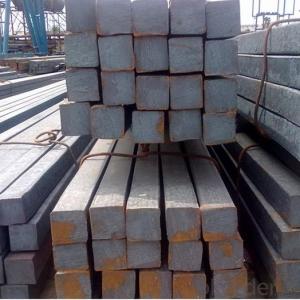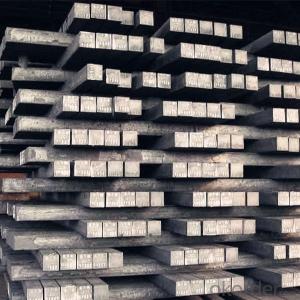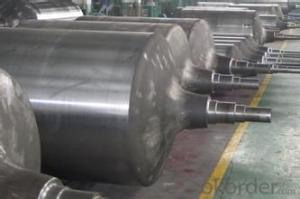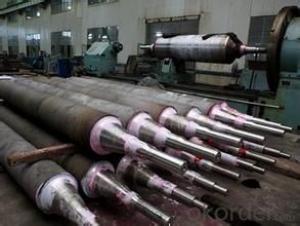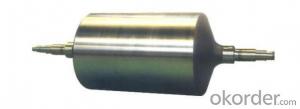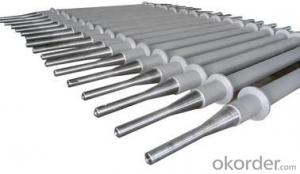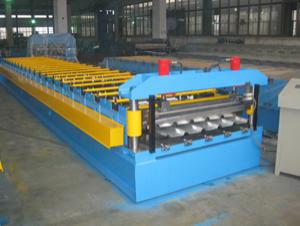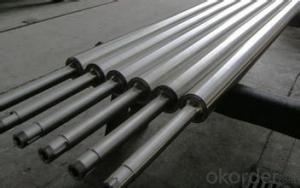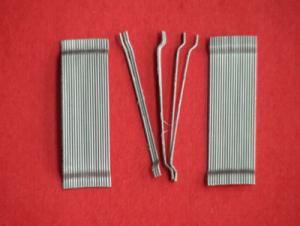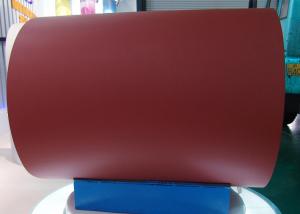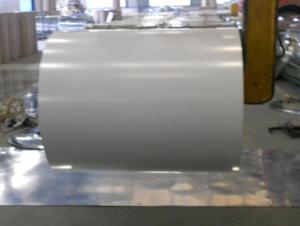Continuous Annealing Line and galvanizing line furnace roll
- Loading Port:
- Tianjin
- Payment Terms:
- TT OR LC
- Min Order Qty:
- 1000 PCS
- Supply Capability:
- 10000 PCS/month
OKorder Service Pledge
OKorder Financial Service
You Might Also Like
Quick Details
| Condition: | New | Type: | Resistance Furnace | Usage: | Heat Treatment Furnace,Bright Annealing |
| Place of Origin: | Brand Name: | Model Number: | FSL-16-30 | ||
| Voltage: | 380V | Power(W): | 85KW | Dimension(L*W*H): | 16000x1350x1650mm |
| Certification: | ISO | Warranty: | 12 months | After-sales Service Provided: | Engineers available to service machinery overseas |
| Conveyor Blet: | Steel belt or Mesh belt | Furnace hearth pipe: | Muffle | Heating Element: | Heating Wire |
| Heating method: | Electricity or Natural Gas | Protective Atmosphere: | Nitrogen and Hydrogen gas | Production Capacity: | 120kg/h |
| Effective Working Size: | 3500x300x80mm | Phase: | 3 | Rated Temerature: | 1150℃ |
Packaging & Delivery
| Packaging Detail: | Standard export packing( wood carton , polyethylene film, foam) |
| Delivery Detail: | witin 30 days after received deposite |
Specifications
continuous annealing line and galvanizing line furnace roll
1.No industrial pollution
2.less power consumption
3.ammonia gas
Continuous annealing line and galvanizing line furnace roll
Brief Introduce Of Steel Belt Continuous Bright Annealing Furnace :
This steel belt continuous gas shielded bright heat treatment furnace is mainly used for the continuous bright quenching of Martensitic stainless steel, bright annealing of austenitic stainless steel or the continuous production during brazing of silver, copper, aluminum products. After suffering from such equipment treatment, product surface becomes bright without oxidation.
Application Of Steel Belt Bright Annealing Furnace:
Mainly be used for steel belt, steel cutting tools, small mechanical parts without oxidation under the high temperature heating and cooling without oxidation. Such as ,SUS420J2,3Cr13,410,301,304,316,3156L,420,S315,201 ,202 ,etc.
Can also be used in powder metallurgy sintering, annealing of magnetic materials and some small metal parts,such as watch case, strap, kitchenware industry of annealing, quenching and stainless steel bright annealing, especially Cr13 stainless steel quenching, stainless steel solid solution treatment, etc.
Suitable for stainless steel, carbon steel, copper, brass, aluminum same base metal or different base metal brazing, can be widely used in compressor industry machine, household appliances, cookers, hardware and other industries
Main Model And Parameters:
| Model Type | Rated Power (KW) | Rated Temperature (°C ) | Rated Voltage (V) | Phase | Effective Working Size LxWxH(mm) | Overall size LxWxH(mm) | Production Capacity (kg/h) |
| FSL-6-15 | 20 | 1150 | 380 | 3 | 1600x155x40 | 6800x1200x1500 | 22 |
| FSL-6-20 | 21 | 1150 | 380 | 3 | 1600x200x50 | 6800x1230x1500 | 28 |
| FSL-8-15 | 24 | 1150 | 380 | 3 | 2000x155x50 | 8800x1200x1500 | 35 |
| FSL-12-15 | 30 | 1150 | 380 | 3 | 2600x155x50 | 6800x1230x1500 | 40 |
| FSL-12-20 | 45 | 1150 | 380 | 3 | 2600x200x60 | 11800x1020x1500 | 52 |
| FSL-16-20 | 60 | 1150 | 380 | 3 | 3500x200x60 | 16000x1230x1600 | 80 |
| FSL-16-25 | 70 | 1150 | 380 | 3 | 3500x250x80 | 16000x1300x1650 | 100 |
| FSL-16-30 | 85 | 1150 | 380 | 3 | 3500x300x80 | 16000x1350x1650 | 120 |
| FSL-20-35 | 120 | 1150 | 380 | 3 | 4500x350x120 | 20500x1400x1700 | 200 |
| FSL-20-50 | 150 | 1150 | 380 | 3 | 4500x500x200 | 25000x1700x2300 | 280 |
| FSL-28-72 | 210 | 1150 | 380 | 3 | 5000x720x300 | 28000x2030x20000 | 400 |
- Q: What are the different types of steel sections used in industrial structures?
- There are several types of steel sections commonly used in industrial structures, including I-beams, H-beams, channels, angles, and T-sections. These sections are chosen based on their structural properties, such as load-bearing capacity and resistance to bending. Each section has its own unique shape and dimensions, allowing for efficient distribution of weight and optimal structural integrity in various applications.
- Q: How does steel pipe threading work?
- Steel pipe threading is a process where a machine is used to cut threads into the ends of steel pipes. The machine grips the pipe securely and rotates it while simultaneously cutting or forming the threads using a die or cutting tool. This creates a threaded connection that can be used to join pipes together or attach fittings, ensuring a tight and secure seal. Threading is commonly used in plumbing, construction, and industrial applications.
- Q: How is steel used in the construction of railway stations and terminals?
- Steel is a crucial material in the construction of railway stations and terminals as it is used for various structural components such as beams, columns, and trusses, providing strength and stability to the buildings. It is also used in the fabrication of platforms, staircases, and canopies, ensuring durability and safety for passengers and staff. Moreover, steel is employed in the construction of railway tracks and platforms, providing a sturdy foundation for the movement of trains and facilitating efficient transportation.
- Q: What are the different types of steel nails and their applications?
- There are various types of steel nails available, each with its own specific applications. Common types include common nails, finishing nails, roofing nails, and concrete nails. Common nails are typically used for general construction purposes, while finishing nails are smaller and designed for finer woodworking projects. Roofing nails have a larger head and are used for securing roofing materials. Concrete nails are specifically designed for fastening materials to concrete surfaces. These different types of steel nails are chosen based on their intended use and the specific requirements of the project.
- Q: What are the different types of steel products used in the manufacturing of sports equipment?
- The different types of steel products commonly used in the manufacturing of sports equipment include stainless steel, carbon steel, alloy steel, and tool steel. Each type of steel possesses unique properties and characteristics that make them suitable for specific applications in sports equipment manufacturing. Stainless steel is corrosion-resistant and commonly used in the production of golf club heads, baseball bats, and tennis rackets. Carbon steel, known for its strength and durability, is used in the fabrication of bicycle frames, barbells, and weight plates. Alloy steel, which combines different metals to enhance specific properties, is often used in the construction of high-performance sports equipment such as bicycle gears and golf club shafts. Tool steel, valued for its hardness and ability to retain sharp edges, is utilized in the manufacturing of ice skates, hockey sticks, and knife blades.
- Q: How is steel plate cut using CNC machines for fabrication?
- Steel plate is cut using CNC machines for fabrication by following a specific process. First, the steel plate is securely clamped onto the machine's worktable. Then, the CNC machine operator feeds the required dimensions and cutting parameters into the computer program. The machine's cutting tool, typically a plasma or laser cutter, moves along the programmed path to precisely cut the steel plate according to the specified design. The CNC machine's high accuracy and automation ensure clean and precise cuts, resulting in accurate and efficient fabrication of steel plates.
- Q: What are the uses of steel wire mesh?
- Steel wire mesh has a wide range of uses, including reinforcing concrete structures, providing security in fencing and gates, preventing animals from entering certain areas, filtering and sieving materials, supporting and reinforcing walls and ceilings, and creating partitions or barriers in construction and industrial applications.
- Q: How is steel used in the construction of railway bridges and tracks?
- Steel is used extensively in the construction of railway bridges and tracks due to its high strength, durability, and resistance to corrosion. It is used to fabricate beams, columns, and girders that form the main structural elements of the bridge. Steel is also used to manufacture rails, sleepers, and fasteners for the tracks, ensuring a smooth and stable surface for trains to run on. Additionally, steel is used for reinforcing concrete in bridge piers and abutments, providing added strength and stability to the overall structure.
- Q: How is steel wire rope inspected for safety?
- Steel wire rope is inspected for safety through a comprehensive process that includes visual inspections, non-destructive testing, and load testing. Trained inspectors carefully examine the rope for any signs of damage, such as broken wires, corrosion, or wear. Non-destructive testing techniques, such as magnetic particle inspection or ultrasonic testing, are used to detect internal flaws or defects that may not be visible to the naked eye. Finally, load testing is conducted to ensure the rope can handle the intended workload without any issues. Regular and thorough inspections are crucial to maintaining the safety and reliability of steel wire ropes in various applications.
- Q: What are the different types of steel chains and their uses in the automotive manufacturing process?
- There are several types of steel chains used in the automotive manufacturing process. One common type is roller chains, which are used in the engine to transmit power from the crankshaft to the camshaft, ensuring proper valve timing. Another type is timing chains, which are responsible for synchronizing the rotation of the crankshaft and camshaft to maintain engine performance. Additionally, conveyor chains are used in assembly lines to transport car components during the manufacturing process. These steel chains are crucial in ensuring the efficiency, reliability, and precision of automotive production.
Send your message to us
Continuous Annealing Line and galvanizing line furnace roll
- Loading Port:
- Tianjin
- Payment Terms:
- TT OR LC
- Min Order Qty:
- 1000 PCS
- Supply Capability:
- 10000 PCS/month
OKorder Service Pledge
OKorder Financial Service
Similar products
Hot products
Hot Searches
Related keywords
